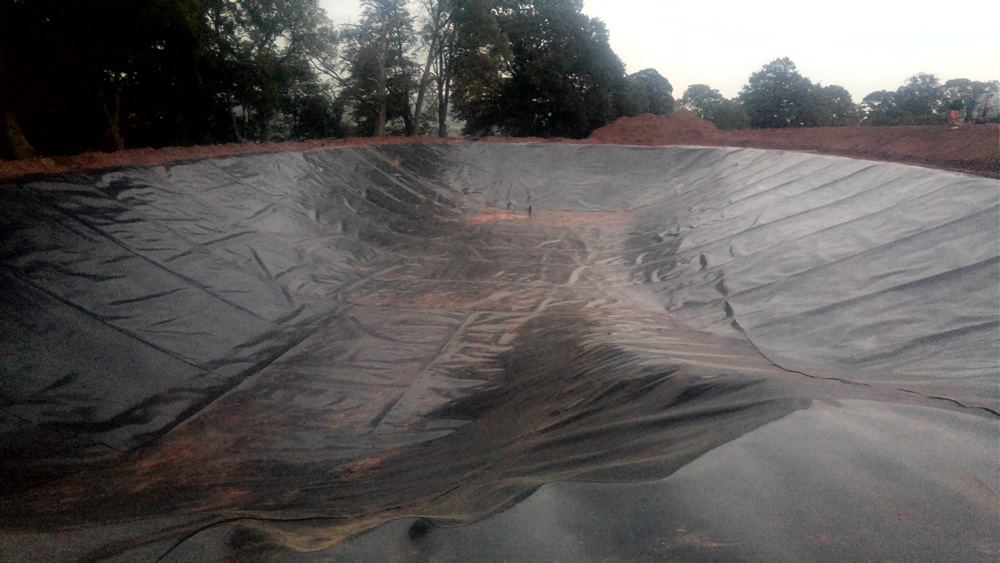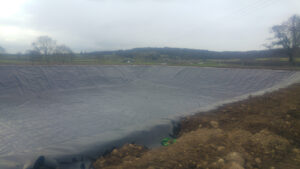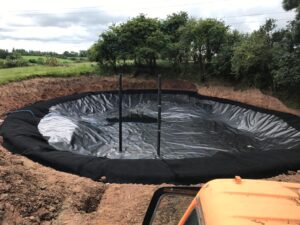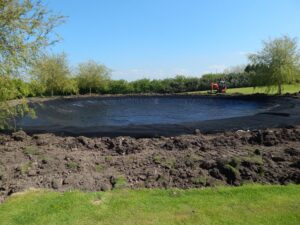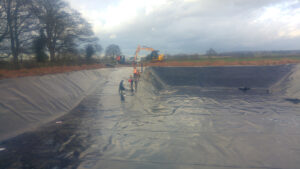Farm slurry lagoon liners are vital components in agricultural settings, serving as protective barriers in the containment of agricultural waste, particularly slurries generated from farming activities. These liners are essential for preventing seepage, groundwater contamination, and preserving environmental integrity.
Understanding Farm Slurry Lagoon Liners
Farm slurry lagoon liners are impermeable barriers installed in containment structures designed to hold and store agricultural waste, such as slurries, manure, and effluents generated from livestock farming or crop cultivation. These liners ensure that the stored waste remains contained within the lagoon, preventing its leakage into the soil or surrounding water sources.
Uses in Agriculture
Slurry Storage: These liners are utilised in constructing lagoons or storage facilities where slurry, a mixture of animal waste and water, is stored before being used as fertiliser or spread on fields.
Environmental Protection: Liners prevent the seepage of slurry into the soil or groundwater, reducing the risk of nutrient leaching and contamination of water sources, preserving environmental quality
Benefits of Farm Slurry Lagoon Liners
Containment of Agricultural Waste: These liners provide impermeable barriers, effectively containing and managing agricultural waste, ensuring it remains within the designated storage area.
Environmental Preservation: By preventing the seepage of slurry, liners minimise the risk of nutrient runoff, reducing the potential for water pollution and protecting aquatic ecosystems.
Compliance with Regulations: Using liners in slurry lagoons ensures compliance with environmental regulations, mitigating environmental impact and minimising potential legal liabilities.
Optimised Nutrient Management: Slurry stored within lined lagoons can be utilised as organic fertiliser, aiding in sustainable nutrient management for crops.
Types of Liners
Geomembrane Liners: Commonly used in farm slurry lagoons, these liners are made of impermeable materials like HDPE, PVC, or EPDM, providing effective containment barriers.
Applications in Agriculture
Livestock Farms: These liners are prevalent in livestock farming, where slurries from animals are stored in lagoons before being used as natural fertilisers for crops.
Crop Cultivation: Slurry, when appropriately managed using liners, becomes a valuable nutrient source for crops, aiding in soil fertility and crop productivity.
Conclusion
Farm slurry lagoon liners are indispensable in agricultural waste management, safeguarding environmental health and promoting sustainable farming practices. Their role in containing and managing agricultural waste, minimising water contamination, and supporting nutrient management underscores their significance in modern agricultural practices. As the agricultural industry continues to prioritise sustainability and environmental commitment, farm slurry lagoon liners remain crucial in ensuring responsible waste management and preserving the integrity of our ecosystems.
To find out more about our products and services and how we can help you, please contact us using the below –
Tel: 01695 228626
Email: enquiries@enviroseal.co.uk

